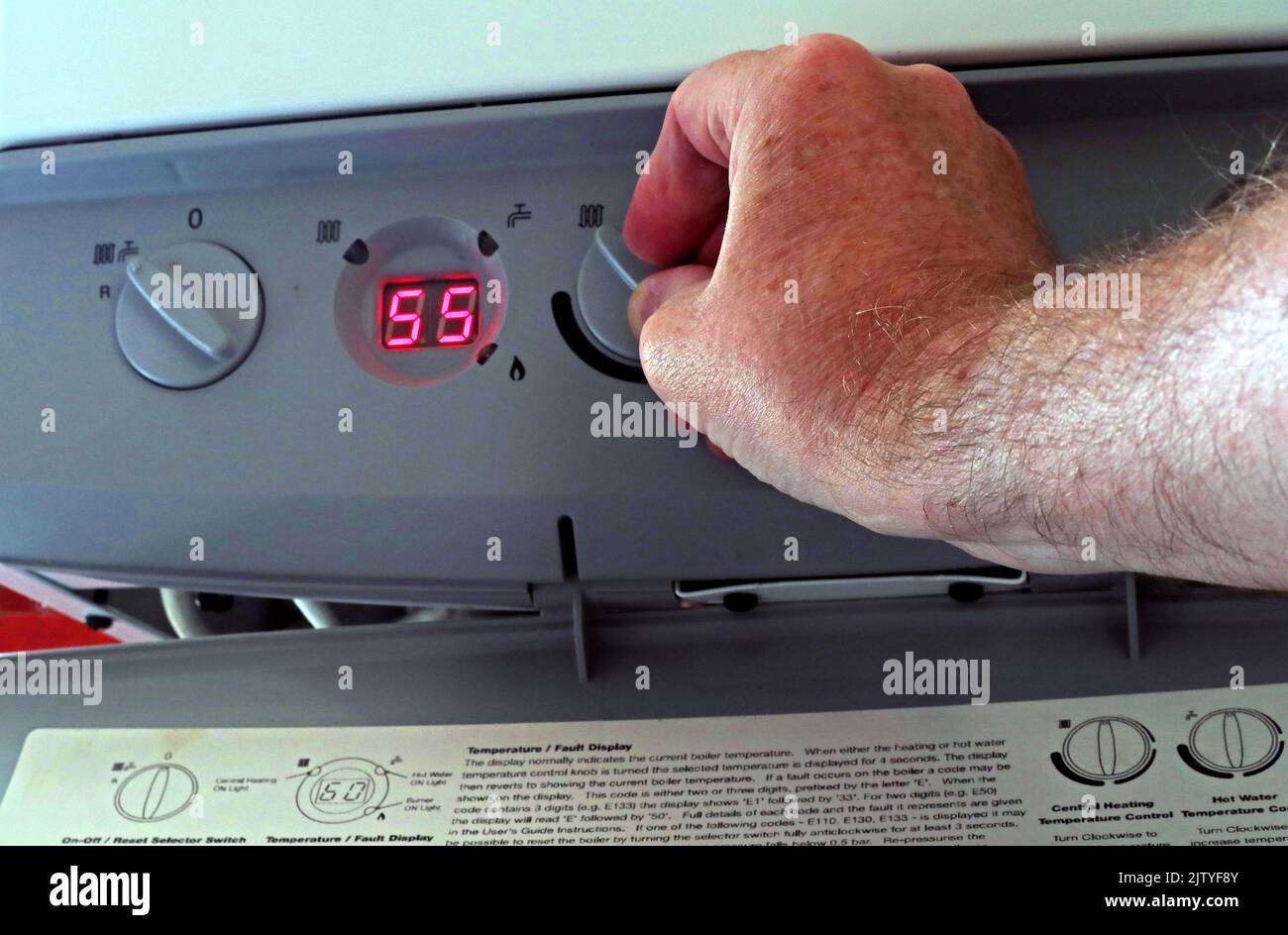Reducing domestic fuel bill by lowering Condensing Central Heating boiler temperature for radiators on a -Baxi Platinum

Image details
Contributor:
Tony Smith / Alamy Stock PhotoImage ID:
2JTYF8YFile size:
46.4 MB (2.1 MB Compressed download)Releases:
Model - no | Property - noDo I need a release?Dimensions:
4968 x 3264 px | 42.1 x 27.6 cm | 16.6 x 10.9 inches | 300dpiDate taken:
2 September 2022Location:
United KingdomMore information:
Save up to 8% in gas use, by turning down the 'flow' temperature, a tip from Money Saving expert to reduce fuel bill and poverty A recent report by the Heating and Hot Water Council (HHIC)* found that households can save around 6-8% in gas just by turning down the heating flow temperature on their condensing combi boiler. To be clear, this is not turning down your thermostat. Nearly all combi boilers are not optimised to run as efficiently as they should, which increases household gas bills and emits more carbon. Reducing the operating temperature for heating will help your boiler run more efficiently without reducing your comfort. You will need to have a condensing combi boiler, i.e. a boiler that produces your heating and hot water. You will have a combi boiler if you do not have a hot water cylinder. It will definitely be a condensing boiler if it was fitted in the last 16 years. A condensing boiler will also have a white plastic pipe underneath the boiler (although it can be grey or black). Most combi boilers have two dials: one for heating (usually with a little radiator icon over it) and one for hot water (with a little tap icon). Some only have one dial but it is usually for the heating flow temperatures. Some dials do not provide the actual temperature setting. Some like Worcester are numbered 1-6, some have dashed lines and others a curved line of increasing thickness. Some user manuals do provide additional information.